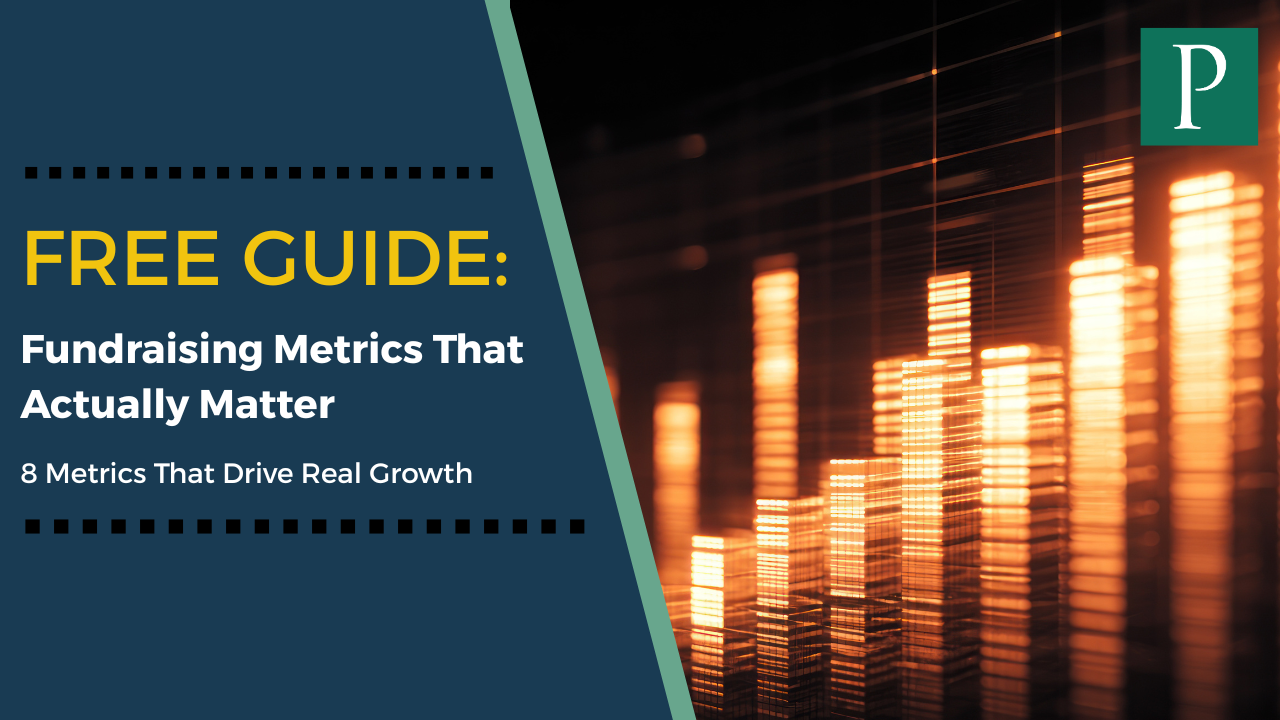The Easiest Donor Meetings You’ll Ever Schedule

The start of the year is full of fresh goals, long to-do lists, and that faint hope that this will be the year you finally organize your inbox. (Spoiler alert: it won’t be.)
But there’s one task you should definitely add to your calendar that’s both rewarding and surprisingly easy: stewardship meetings with your end-of-year donors.
Why are these meetings so easy? Because they’re all about saying “thank you” and sharing impact—not asking for another gift. And guess what? People love being appreciated. Who doesn’t enjoy a little post-holiday praise for being generous and awesome?
When done right, these early-year conversations can set the stage for long-term relationships, future generosity, and maybe even the holy grail of fundraising: a donor who offers to write the check before you even ask.
Let’s dive into why these meetings matter, why they’re so easy to get, and what you should discuss when you sit down with your donors.
Why Stewardship Meetings Matter
Think of stewardship meetings as the secret sauce that makes donor relationships stick. They’re the warm, melty cheese in your mission’s fundraising quesadilla. They strengthen the connection between your organization and the people who believe in your work.
When you set up a meeting after a donor makes a gift—especially a significant one—you’re showing them that their support isn’t just another transaction. You’re demonstrating that their generosity fuels real, tangible impact. And that simple act of acknowledgment? It can make a world of difference.
You’re doing more than saying “thanks.” You’re reinforcing their role as a key part of your mission and planting seeds for future involvement. So, when the time comes to make another ask later in the year, they’re already thinking, Of course I’ll help!
Why Early-Year Stewardship Meetings Are So Easy to Get
Here’s a little-known fact about donors: people love being thanked. It’s like free compliments—nobody’s turning those down. That’s why these meetings are some of the easiest you’ll ever schedule.
In January and February, most donors have lighter schedules after the holiday chaos. They’ve emerged from their festive food comas and are optimistic about their plans for the new year.
They’re still feeling pretty good about the gifts they made in December. When you say, “I’d love to meet and share how your support is making an impact,” you’re not setting off any red flags.
Plus—they just gave. They know this meeting isn’t another “dig deep into your wallet” moment. It’s just about gratitude.
Instead of thinking, Oh no, another solicitation, they’re thinking, How nice—they want to tell me how great I am! And let’s be real—donors don’t get enough of that.
Topics to Discuss During Stewardship Meetings
The key to a great stewardship meeting? Make it a conversation, not a TED Talk. Here’s what to chat about when you’re sitting down with your donors:
1. Express Gratitude
Start with a sincere “thank you.” Be specific—mention their exact gift and what it’s making possible. People love to know that their generosity is already creating change.
2. Share Impact Stories
Tell them about the real people their gift has helped. Did their support fund scholarships, retreats, or new choir robes? Share stories that show how their gift made a difference.
3. Invite Feedback
Ask your donor how they feel about your organization’s work. What do they think about your latest initiatives? Listening shows that you value their opinion—and it can provide valuable insights.
4. Explore Their Priorities
Use open-ended questions to learn more about what they care about most:
-
“What inspired you to make your gift this year?”
-
“Which of our programs excites you the most?”
-
“Are there areas where you’d like to get more involved?”
5. Offer a Behind-the-Scenes Look
If possible, invite donors to see their gift in action. Whether it’s a tour of the new chapel they helped fund or an invitation to a ribbon-cutting event, giving donors a front-row seat strengthens their sense of partnership.
Tips for Scheduling and Conducting Productive Stewardship Meetings
Offer Flexibility: Let donors choose where to meet—a coffee shop, their office, or even their living room.
Clarify There’s No Ask: Reassure them that this is a stewardship meeting to share gratitude and impact, not a solicitation.
Bring Visuals: Photos, impact reports, or thank-you letters from program participants add a personal touch and make the impact feel real.
Take Notes: Write down any insights your donor shares about their priorities, interests, or feedback for future reference.
The Long-Term Benefits of Early-Year Stewardship
By prioritizing stewardship meetings at the start of the year, you set the tone for a stronger, more trusting relationship. Donors who feel appreciated and engaged are more likely to:
-
Stay Loyal: Regular updates and thank-yous make donors feel like valued partners, not just human ATMs.
-
Increase Their Giving: Over time, meaningful stewardship can lead to increased annual gifts or larger commitments.
-
Become Advocates: Engaged donors often spread the word to friends and family, bringing new supporters into the fold.
A Year-End Gift Deserves a Year-Start Thank You
Scheduling stewardship meetings early in the year isn’t just good manners—it’s good strategy. By showing donors how much you value their support and sharing the real-life impact of their generosity, you build trust and connection that lasts far beyond one gift.
Take time in January and February to connect meaningfully with your end-of-year donors. These no-pressure, feel-good conversations can lay the foundation for partnerships that will sustain your mission for years to come—and hey, they might even be the most enjoyable meetings on your calendar.
Note: This article originally appeared in Petrus Development's Raise the Church newsletter. If you would like to receive exclusive articles like this twice a month, you can subscribe subscribe HERE.
READY TO BECOME A BETTER FUNDRAISER?
Sign up below to receive tools, ideas, and inspiration to take your development efforts to the next level.
We hate SPAM. We will never sell your information, for any reason.


